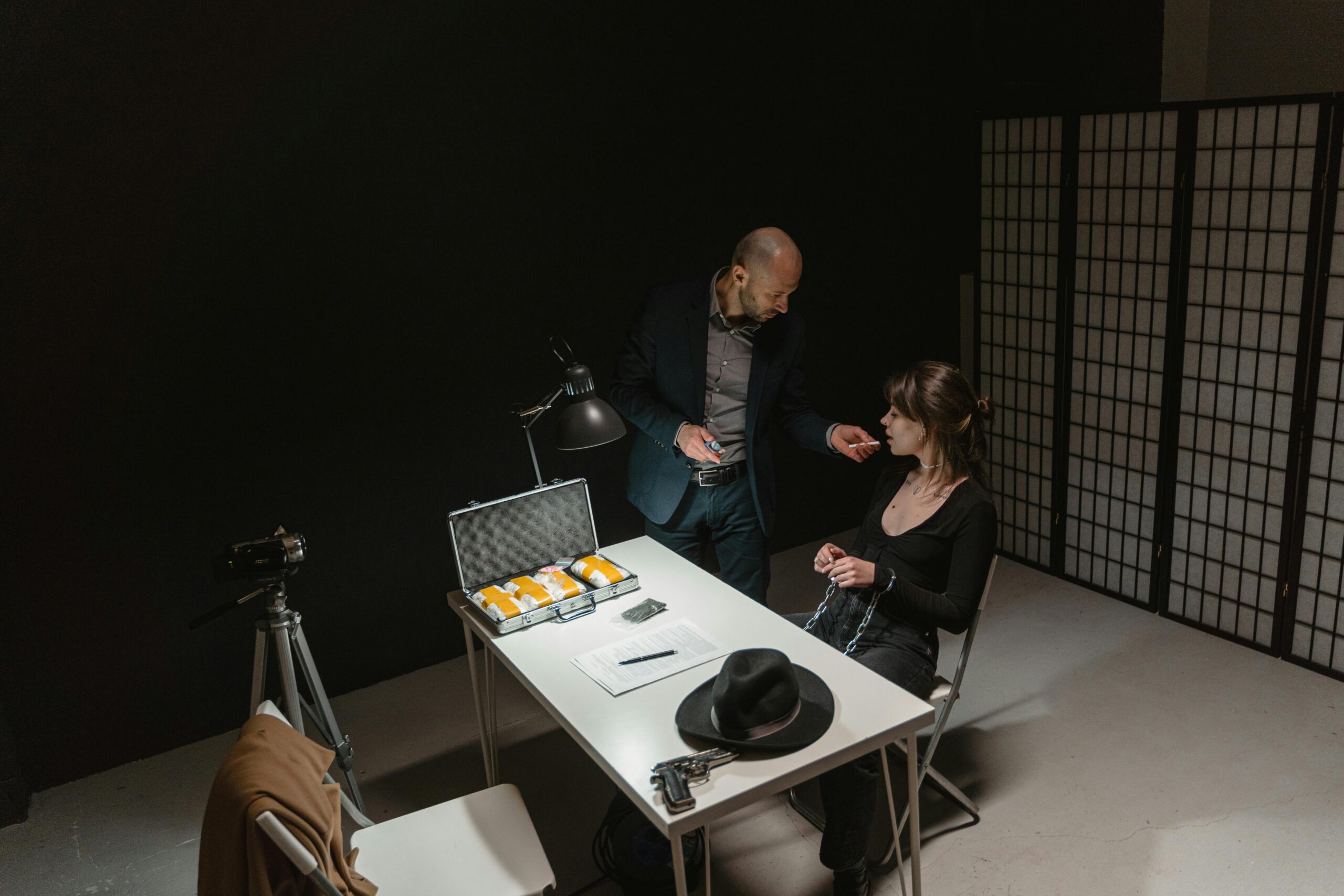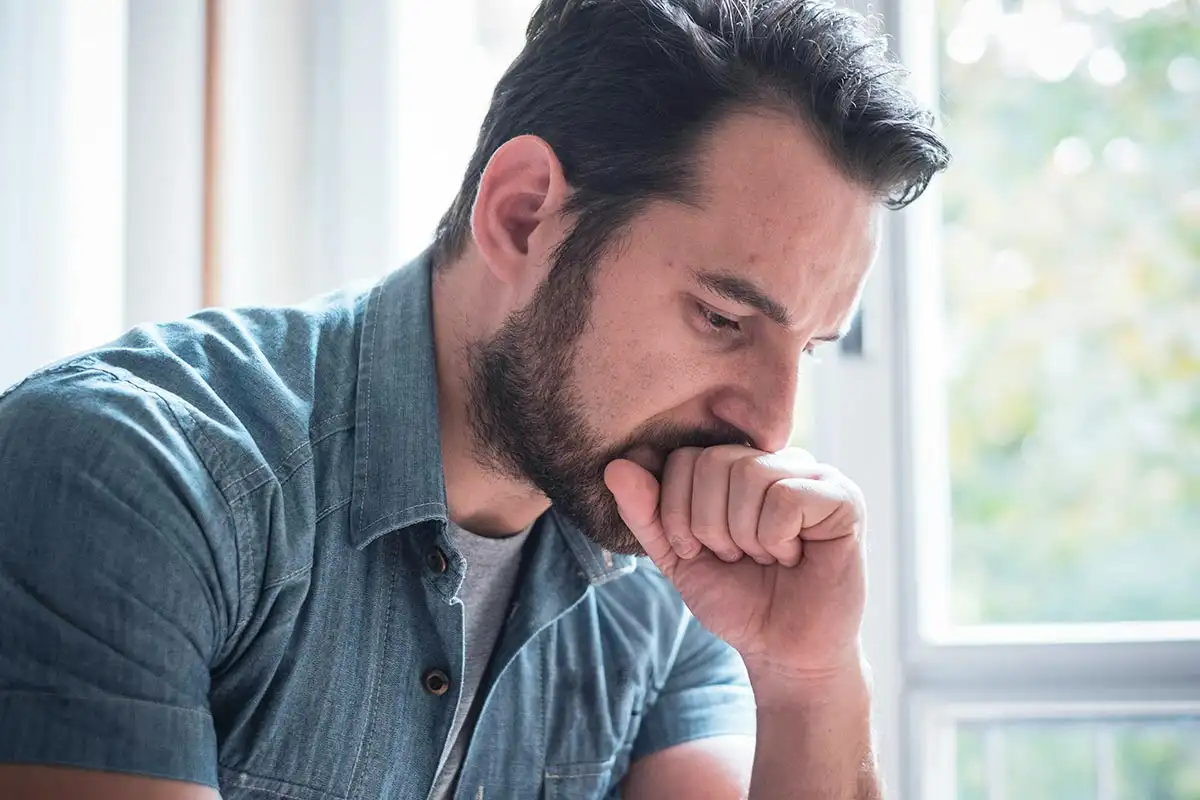
Berkeley Students: Confidential Virtual IOP for Addiction & Mental Health
Medically Reviewed by:

Dr. Marco M. Zahedi
Medical Director, Compassion Recovery Center

Dr. Michael Majeski
Licensed Psychologist (LP), Compassion Recovery Center
Table of Contents
Understanding the Unique Pressures on Berkeley Students
The life of a student at the University of California, Berkeley, is often characterized by immense academic rigor, a vibrant social scene, and the pursuit of ambitious goals. While this environment can be incredibly stimulating and rewarding, it can also bring significant pressures. The demand to excel, coupled with newfound independence, social adjustments, and future uncertainties, can create a fertile ground for stress, anxiety, and other mental health challenges. For some students, these pressures can lead to or exacerbate struggles with substance use, as individuals may turn to drugs or alcohol as a way to cope, fit in, or manage overwhelming feelings. Recognizing the signs of addiction or worsening mental health is the first crucial step, but finding the right support, especially support that understands the unique context of student life, is paramount. The challenges are multifaceted. Academic stress is a well-documented concern, with demanding coursework, competitive environments, and the pressure to maintain high GPAs. Social pressures can also play a significant role, from navigating new relationships to the desire to be accepted, sometimes leading to experimentation with substances in social settings. Furthermore, many students are living away from home for the first time, managing their schedules, finances, and personal well-being independently, which can be an overwhelming transition. When these stressors converge, mental health conditions like depression, anxiety disorders, or trauma-related issues can surface or intensify. Unfortunately, substance use can become intertwined with these conditions, often as a form of self-medication, creating a cycle that is difficult to break without professional help. This is why acknowledging the need for specialized Berkeley students addiction treatment is so critical. It’s important to remember that struggling with mental health or substance use is not a sign of weakness, nor is it uncommon. Many high-achieving individuals, including students at prestigious universities like Berkeley, face these battles. The key is to access support systems that are not only effective but also accommodating to the demands and sensitivities of student life. This is where the importance of confidential and accessible treatment options cannot be overstated. Students often worry about stigma, the potential impact on their academic record or social standing, or simply how to fit treatment into an already packed schedule. Traditional rehab programs might seem daunting or impractical. This is why innovative approaches like Intensive Outpatient Programs (IOPs), especially those offered virtually, are becoming increasingly vital. An IOP provides a structured level of care that is more intensive than standard outpatient therapy but allows individuals to continue with their daily responsibilities, such as attending classes and engaging in campus life, offering a balance that is essential for students. If you or a friend are navigating these challenges, know that effective, understanding help is available. You can reach out today for a confidential conversation about your options.
Understanding Virtual IOP: A Modern Approach to Healing
An Intensive Outpatient Program, or IOP, is a structured form of treatment designed for individuals struggling with addiction, substance use disorders, or co-occurring mental health conditions who do not require 24/7 medical supervision like that found in residential inpatient programs. IOPs offer a significant level of support and therapy, typically involving several hours of treatment per day, multiple days a week. The core components usually include individual therapy, group therapy, psychoeducation, skills training, and relapse prevention planning. The goal is to provide robust support while enabling participants to maintain their daily routines, such as work, school, and family commitments. This balance is particularly beneficial for students who need to continue their academic pursuits while addressing their health. Now, imagine taking this effective model and making it even more accessible and discreet through technology. That’s precisely what a Virtual Intensive Outpatient Program (Virtual IOP) offers. A confidential virtual IOP delivers the same comprehensive therapeutic services as a traditional IOP, but entirely online through secure telehealth platforms. Participants engage in individual counseling sessions with licensed therapists, participate in dynamic group therapy discussions, attend educational workshops, and receive case management support, all from the privacy and comfort of their own chosen environment – be it their dorm room, apartment, or any private space with an internet connection. This model leverages video conferencing, secure messaging, and digital resources to create an engaging and effective treatment experience. At Compassion Recovery Center, our Virtual IOP Program is specifically designed to meet these needs, offering flexible yet structured care. How does a Virtual IOP differ from traditional outpatient programs? Traditional outpatient programs might involve one or two therapy sessions per week. While beneficial for some, they may not offer sufficient intensity for individuals needing more structured support to manage acute symptoms, prevent relapse, or address complex co-occurring conditions. A Virtual IOP, like its in-person counterpart, provides a higher frequency and intensity of care. The key difference from traditional IOPs lies in its delivery method. Instead of commuting to a physical clinic, which can be time-consuming and a barrier for busy Berkeley students, all activities are conducted online. This eliminates travel time, offers greater scheduling flexibility, and can significantly reduce the feeling of being “seen” attending a treatment facility, which is a major concern for many. The benefits of Virtual IOP for students are numerous and particularly compelling. Firstly, flexibility is paramount. Students juggling demanding course loads, extracurricular activities, part-time jobs, and social lives need treatment options that can integrate seamlessly into their schedules. Virtual IOPs often offer evening or varied session times, making it easier to participate without academic disruption. Secondly, confidentiality and privacy are significantly enhanced. Seeking help for addiction or mental health can be a deeply personal and sometimes sensitive journey. The discreet nature of telehealth allows students to access care without the fear of encountering peers or faculty at a clinic, reducing stigma and encouraging more individuals to seek the help they need. Thirdly, accessibility is a major advantage. Whether a student lives in a remote part of Berkeley, has mobility challenges, or simply prefers the comfort of their own space, telehealth removes geographical barriers. For those considering their options, a Free Assessment can help determine if a Virtual IOP is the right fit for their specific circumstances and needs. The overarching goal is to make high-quality telehealth addiction treatment readily available to those who need it most.The Critical Need for Confidentiality in Student Treatment
For any individual seeking help for addiction or mental health concerns, privacy is a fundamental right and a critical component of effective treatment. This need for confidentiality is often amplified for students, particularly those in a competitive academic environment like UC Berkeley. The fear of stigma, judgment from peers or faculty, potential repercussions on academic standing, or even future career prospects can be significant deterrents to seeking help. Students may worry about being labeled, misunderstood, or treated differently if their struggles become known. Therefore, treatment programs must prioritize and rigorously uphold the confidentiality of their clients. When students feel secure that their personal health information is protected, they are more likely to be open and honest in therapy, which is essential for meaningful progress and healing. A breach of trust in this area can be detrimental to the therapeutic relationship and the individual’s recovery journey. Telehealth platforms, when chosen and implemented correctly, are designed with robust security measures to ensure confidentiality for students seeking addiction and mental health treatment. Reputable providers of confidential virtual IOP services, like Compassion Recovery Center, utilize HIPAA-compliant video conferencing software, secure messaging systems, and encrypted data storage. This means that all communication between the student and the treatment team – whether it’s an individual therapy session, a group discussion, or the sharing of personal information – is protected against unauthorized access. Unlike attending a physical clinic where one might worry about being seen, telehealth allows students to receive care from any private location of their choosing. This inherent discretion is one of the most significant advantages of virtual treatment for a student population concerned about privacy. Furthermore, digital records are often more secure than paper files, with access controls and audit trails that monitor who views the information. Beyond the technological safeguards, there are stringent legal and ethical considerations that govern confidential care in telehealth. The Health Insurance Portability and Accountability Act (HIPAA) in the United States sets national standards for protecting sensitive patient health information from being disclosed without the patient’s consent or knowledge. All legitimate telehealth providers, including those offering Drug Rehab Programs or Alcohol Rehab Programs online, must adhere to these regulations. This includes obtaining informed consent from students before treatment begins, clearly outlining how their information will be used, stored, and protected, and explaining their rights regarding their health records. Ethically, therapists and counselors are bound by professional codes of conduct that emphasize patient confidentiality as a cornerstone of the therapeutic alliance. There are, of course, specific and rare exceptions to confidentiality, such as imminent risk of harm to self or others, or court orders, which are typically discussed with clients at the outset of treatment. Understanding these protections can significantly ease a student’s concerns about seeking help through a virtual platform. If you have questions about how your privacy is protected, we encourage you to Contact Us for more detailed information. We are committed to creating a safe and trusting environment for every student we serve.
Comprehensive Services Offered in Our Virtual IOP
A cornerstone of effective addiction and mental health treatment is Cognitive Behavioral Therapy (CBT). Our online CBT therapy is a highly effective, evidence-based approach that helps individuals understand the intricate connections between their thoughts, feelings, and behaviors. For students struggling with issues like anxiety, depression, or substance use, CBT provides practical tools to identify and challenge negative or unhelpful thought patterns that often fuel these problems. For example, a student might consistently think, “I’m going to fail this exam, so what’s the point of trying?” This thought can lead to feelings of hopelessness and behaviors like procrastination or substance use to avoid the anxiety. CBT works by helping the student recognize this pattern, examine the evidence for and against such thoughts, and develop more balanced and realistic perspectives. Therapists guide students in learning new coping strategies, problem-solving skills, and behavioral techniques to manage stress, regulate emotions, and make healthier choices. In the context of addiction, CBT is invaluable for identifying triggers, developing relapse prevention strategies, and building self-efficacy – the belief in one’s ability to maintain sobriety and manage challenges. The skills learned in CBT are designed to be long-lasting, empowering students to become their own therapists over time. For some individuals, particularly those dealing with opioid or alcohol use disorders, Medication-Assisted Treatment (MAT) can be a crucial component of a comprehensive recovery plan. Our MAT treatment online combines FDA-approved medications with counseling and behavioral therapies to treat substance use disorders. It’s important to understand that MAT is not simply substituting one drug for another; rather, these medications work by normalizing brain chemistry, blocking the euphoric effects of alcohol and opioids, relieving physiological cravings, and normalizing body functions without the negative effects of the abused substance. Medications like buprenorphine, naltrexone, or acamprosate can significantly reduce the often-overwhelming cravings and withdrawal symptoms that make early recovery so challenging. This allows individuals to focus more effectively on the therapeutic aspects of their treatment, such as CBT and group counseling. When delivered via telehealth, MAT involves careful assessment by qualified medical professionals, prescription management (often with coordination with local pharmacies), and ongoing monitoring, all conducted through secure virtual consultations. This approach makes MAT more accessible to students who might otherwise face barriers to receiving this life-saving treatment. We encourage students to Verify Insurance to see if MAT services are covered. Addiction and mental health issues rarely exist in a vacuum; they often impact and are impacted by close relationships. Recognizing this, we offer virtual couples counseling rehab as an integral part of our services when appropriate. Substance use or mental health struggles can strain relationships with partners, creating communication breakdowns, mistrust, and emotional distance. Virtual couples counseling provides a supportive and confidential space for students and their partners to address these challenges together. Therapists help couples understand how addiction or mental illness affects their dynamic, improve communication skills, learn healthier ways to support each other, and rebuild trust. For a student in recovery, having a partner who is informed and involved in the healing process can be an invaluable source of support and motivation. Telehealth makes couples counseling more convenient, as partners can participate from different locations if necessary, and it can feel less intimidating than attending sessions in person. This service focuses on healing the relationship alongside the individual, fostering a stronger foundation for lasting recovery and well-being. At Compassion Recovery Center, these individual services – online CBT therapy, MAT treatment online, and virtual couples counseling – are not offered in isolation. They are carefully integrated into a comprehensive and personalized treatment plan tailored to meet the unique needs of each Berkeley student. We understand that every individual’s journey is different, and a one-size-fits-all approach is rarely effective. Our process begins with a thorough assessment to understand the student’s specific challenges, strengths, and recovery goals. Based on this assessment, our multidisciplinary team collaborates to design a treatment plan that may incorporate a combination of these therapeutic modalities, along with group therapy, psychoeducation, and holistic wellness practices. This integrated approach ensures that we address not only the symptoms of addiction or mental illness but also the underlying causes and contributing factors, including any co-occurring Mental Health Treatment needs through our Dual Diagnosis Treatment capabilities. The goal is to empower students with the knowledge, skills, and support they need to achieve sustainable recovery and thrive academically, socially, and personally.The Transformative Benefits of Telehealth for Berkeley Students
One of the most significant advantages of telehealth addiction treatment for Berkeley students is its unparalleled accessibility and convenience. College life is notoriously busy, with students juggling demanding academic schedules, extracurricular activities, part-time jobs, and a semblance of a social life. Finding time to commute to a physical treatment facility multiple times a week can be a logistical nightmare, often leading students to postpone or forego necessary care. Virtual IOPs eliminate this barrier entirely. Students can attend therapy sessions, participate in group discussions, and consult with medical professionals from the comfort and privacy of their dorm room, apartment, or any quiet space with an internet connection. This means no travel time, no searching for parking, and no need to navigate public transport when feeling vulnerable or unwell. This ease of access makes it far more likely that students will engage consistently with their treatment plan, which is crucial for positive outcomes. Imagine being able to transition from a lecture to a therapy session with just a few clicks – this is the reality telehealth offers, making vital support services fit into a student’s life, rather than requiring them to upend their life for support. Beyond simple convenience, telehealth plays a crucial role in overcoming significant geographical and scheduling barriers that often prevent students from accessing specialized care. Berkeley is a vibrant city, but not all specialized treatment providers or therapists with expertise in specific areas (like co-occurring disorders or particular therapeutic modalities) may be located within easy reach. Telehealth expands the pool of available professionals, allowing students to connect with the best possible care providers, regardless of their physical location within California. This is particularly beneficial for students who might live in off-campus housing that is further away from traditional treatment centers or for those who prefer a provider outside their immediate university community for added privacy. Furthermore, scheduling conflicts are a major hurdle. A rigid class schedule or work commitments can make it impossible to attend daytime appointments at a physical clinic. Virtual programs often offer more flexible scheduling options, including evening or weekend sessions, enabling students to receive intensive treatment without sacrificing their academic responsibilities or other commitments. This flexibility is key to making Intensive Outpatient Program (IOP) services a practical reality for the student population. Consistent engagement and continuity of care are vital for successful recovery, and telehealth significantly enhances both. When treatment is easy to access and fits into a student’s life, they are more likely to attend sessions regularly and remain engaged in the therapeutic process. Missed appointments can disrupt progress and weaken the therapeutic alliance. By removing common barriers like travel, scheduling conflicts, and even minor illnesses (as one can still attend virtually if feeling slightly unwell but not contagious), telehealth promotes better adherence to the treatment plan. Moreover, telehealth ensures continuity of care, which is particularly important for students who may travel during breaks, change residences, or even study abroad for a semester. As long as they have internet access and are within a jurisdiction where the provider is licensed to operate (Compassion Recovery Center serves California), they can continue their treatment without interruption. This consistent support network is invaluable, especially during transitions or periods of increased stress. This level of sustained care can make a profound difference in achieving long-term recovery and well-being. If you’re ready to explore how these benefits can support your journey, consider starting with a start your free assessment with us.Compassion Recovery Center’s Dedication to Berkeley Students
Compassion Recovery Center was founded on the belief that everyone deserves access to high-quality, compassionate, and effective treatment for addiction and co-occurring mental health disorders. Our mission is to provide personalized, evidence-based care that empowers individuals to achieve lasting recovery and reclaim their lives. We understand the unique challenges faced by students, especially those in demanding academic environments like UC Berkeley. The pressure to succeed, coupled with social adjustments and the stresses of modern life, can take a toll. That’s why we’ve tailored our telehealth addiction treatment services to be flexible, confidential, and highly accessible. We aim to break down the barriers that too often prevent students from seeking help, offering a supportive and non-judgmental space where healing can begin. Our team of experienced and licensed professionals is dedicated to guiding each individual through their recovery journey with empathy, respect, and a deep understanding of the complexities of addiction and mental health. We offer a comprehensive suite of services specifically designed to be delivered remotely, making them ideal for Berkeley students seeking help without disrupting their academic pursuits. Our flagship offering is our confidential virtual IOP, which provides a structured yet flexible treatment experience. This program includes individual therapy, group therapy, family involvement (where appropriate), and psychoeducation, all delivered through a secure online platform. A core component of our approach is online CBT therapy, a powerful tool for helping students identify and change negative thought patterns and behaviors that contribute to addiction and mental health issues. For students who may benefit from pharmacological support, we provide MAT treatment online, carefully managed by our medical team to reduce cravings and withdrawal symptoms, making it easier to engage in therapy. Recognizing that addiction and mental health can deeply affect relationships, we also offer virtual couples counseling rehab to help students and their partners navigate challenges and rebuild healthy connections. While we are a remote drug rehab Orange County based center, our telehealth services extend throughout California, ensuring Berkeley students have full access to our programs. At Compassion Recovery Center, we firmly believe in a personalized and holistic approach to care. We recognize that addiction and mental health are complex issues with biological, psychological, social, and sometimes spiritual dimensions. Therefore, we don’t offer a one-size-fits-all solution. Instead, we treat the whole person, not just the symptoms. Upon intake, each student undergoes a comprehensive assessment to understand their unique history, challenges, strengths, and recovery goals. This allows us to develop an individualized treatment plan that addresses their specific needs. This might involve Dual Diagnosis Treatment if a student is struggling with both a substance use disorder and a co-occurring mental health condition like depression, anxiety, or PTSD. Our holistic perspective also means incorporating strategies for overall well-being, such as stress management techniques, mindfulness practices, and guidance on building healthy lifestyle habits. The aim is not just sobriety or symptom reduction, but a profound and lasting improvement in overall quality of life, empowering students to thrive in all areas – academically, socially, and personally. We invite you to get help now and learn more about our personalized approach. Our Admissions Information page can also provide further details on getting started.Achieving Success: Outcomes and Support in Virtual Treatment
The question of effectiveness is paramount when considering any form of treatment. Numerous studies and real-world evidence have increasingly demonstrated that Virtual IOPs and other telehealth-based addiction and mental health services can be just as effective as, and in some cases even more beneficial than, traditional in-person programs. Success rates for Virtual IOPs are comparable to their brick-and-mortar counterparts, with positive outcomes measured by reductions in substance use, improvements in mental health symptoms (like decreased anxiety or depression), enhanced coping skills, better daily functioning, and higher rates of treatment completion. The convenience and accessibility of telehealth often lead to greater engagement and adherence to treatment protocols, which are strong predictors of success. For students, this means they can access high-quality, evidence-based care like Virtual IOP Program services without the added stress of logistical challenges, allowing them to focus more fully on their recovery. The key components of successful IOPs – structured therapy, peer support, and individualized attention – are all effectively delivered through secure virtual platforms. Students, in particular, have found significant benefits in leveraging telehealth services for their recovery and mental well-being. Many report that the privacy and discretion of online treatment made them more comfortable seeking help in the first place, especially within a competitive university environment where stigma can be a concern. The flexibility of telehealth addiction treatment allows them to integrate therapy into their demanding schedules, attending sessions between classes or in the evenings from their own living spaces. This has led to improved stress management skills, which are crucial for navigating academic pressures at institutions like Berkeley. Students have shared stories of how learning coping mechanisms through online CBT therapy helped them manage anxiety related to exams or social situations, reducing the urge to self-medicate with substances. Others have found that MAT treatment online provided the stability needed to break free from cravings and focus on their studies and personal growth. The ability to maintain academic progress while receiving robust support is a powerful advantage, preventing the derailment of educational goals that can sometimes occur with more disruptive treatment options. Ultimately, students benefit by gaining tools for healthier living, improved emotional regulation, and stronger interpersonal skills, all contributing to both academic success and overall life satisfaction. If you are curious about how these services can specifically help you, we encourage you to reach out today for a confidential consultation. Recovery is rarely a journey taken entirely alone; the support of family and community plays an indispensable role. While individual therapy and personal commitment are foundational, a strong support network can significantly enhance resilience and reinforce positive changes. Virtual IOPs often incorporate ways to involve family members in the treatment process, if desired by the student and deemed appropriate by the clinical team. This can include virtual family therapy sessions or educational workshops for loved ones to help them understand addiction, learn how to provide effective support, and improve communication. Such involvement can help heal relationships strained by substance use and create a more supportive home environment, even if “home” is a shared student apartment. Beyond immediate family, building a supportive community is vital. Group therapy sessions within the Virtual IOP provide a crucial sense of connection and shared experience with peers who understand the challenges of recovery. Furthermore, telehealth can facilitate connections to broader recovery communities, online support groups, and alumni networks, helping students build a “sober tribe” that extends beyond the formal treatment period. This sense of belonging and mutual support is incredibly powerful in sustaining long-term recovery, especially within the often-stressful and triggering environment of university life. Compassion Recovery Center emphasizes building these connections as part of a holistic approach to healing.Accessing Virtual IOP Services: Your Path to Support
Taking the first step towards recovery can feel daunting, but we strive to make the process of enrolling in our confidential virtual IOP as straightforward and supportive as possible for Berkeley students. It all begins with reaching out. You can contact Compassion Recovery Center through our website or by phone. Our compassionate admissions coordinators are available to answer your initial questions, provide information about our programs, and guide you through the next steps in a confidential and non-judgmental manner. One of the initial practical steps involves insurance verification. We understand that navigating insurance benefits can be confusing, so our team is here to help you understand your coverage for telehealth addiction treatment and any potential out-of-pocket costs. You can often begin this process quickly by using our online Verify Insurance tool. We work with many insurance providers to make our services accessible. Once these preliminary details are addressed, the next crucial step is a comprehensive, confidential assessment. The initial assessment is a cornerstone of our personalized approach to care. This isn’t just a formality; it’s an in-depth conversation conducted by one of our experienced clinicians via a secure telehealth platform. The purpose of this assessment is to gain a thorough understanding of your unique situation. We’ll discuss your history with substance use, any co-occurring mental health concerns (as we offer Dual Diagnosis Treatment), your current challenges, strengths, support systems, and, most importantly, your personal goals for recovery. For Berkeley students, we also consider academic pressures and lifestyle factors. This collaborative process ensures that we gather all the necessary information to develop a treatment plan that is truly tailored to you. Based on this comprehensive evaluation, our clinical team will work with you to create a personalized treatment plan. This plan will outline the specific therapies and services you’ll receive, such as individual Virtual IOP Program sessions, group therapy, online CBT therapy, potential inclusion of MAT treatment online, or virtual couples counseling rehab if appropriate. Your input is vital in this process; we believe that treatment is most effective when you are an active participant in shaping your recovery journey. Our commitment to your well-being extends far beyond the initial enrollment and treatment planning. Throughout your time in our Virtual IOP, you will receive ongoing support and have access to a wealth of resources designed to help you succeed. Regular individual therapy sessions provide a dedicated space to work through personal challenges, develop coping skills, and track your progress. Group therapy offers peer support and shared learning experiences. Our clinical team, including therapists, case managers, and medical staff (if you are receiving MAT), will be consistently available to provide guidance, encouragement, and adjustments to your treatment plan as needed. We understand that recovery is an ongoing process, so we also focus on aftercare planning. This involves helping you develop strategies and identify resources to maintain your progress after completing the IOP. This might include referrals to step-down outpatient services, connections to local or online support groups (such as AA, NA, or SMART Recovery), or guidance on building a strong sober support network within the Berkeley community or beyond. Our goal is to equip you with the tools and continued support necessary for lasting recovery and a fulfilling life. If you’re ready to explore these options, the first step is to get help now or start your free assessment. We are here to support you every step of the way, from your first call to long after you’ve completed our program.Embracing a Healthier Future: The Promise of Accessible Care
The journey through university life at Berkeley, with its unique blend of intense academic pressure and vibrant social experiences, can be incredibly rewarding. However, it’s also a period where students may find themselves grappling with significant mental health challenges or turning to substances as a coping mechanism. We’ve explored how these pressures can manifest and why seeking help is a sign of strength, not weakness. The critical importance of confidential virtual IOP services cannot be overstated for students who value privacy and need flexibility. Traditional barriers to treatment – stigma, time constraints, and accessibility issues – are significantly mitigated by innovative telehealth solutions. Understanding that you are not alone and that effective, discreet support is available is the first empowering step towards healing and well-being. The path to recovery is paved with courage, and for Berkeley students addiction treatment options that respect their unique circumstances are vital. We’ve delved into what a Virtual Intensive Outpatient Program entails, highlighting how it delivers comprehensive care—including online CBT therapy, MAT treatment online, and virtual couples counseling rehab—directly to you, wherever you are. The benefits for Berkeley students are clear: treatment that fits around your classes and commitments, complete privacy, and access to specialized care without geographical limitations. Compassion Recovery Center is committed to providing this level of care. Our mission is rooted in delivering personalized, evidence-based telehealth addiction treatment that addresses not just the symptoms but the whole person. We believe in empowering you with the tools, strategies, and support necessary to navigate the challenges of recovery and build a healthier, more fulfilling future. We encourage you to take that brave step and reach out today. Explore our Virtual IOP Program and see how it can be tailored to your needs. Don’t let concerns about cost hold you back; check insurance coverage easily on our site. The future of addiction and mental health treatment is increasingly intertwined with telehealth. This modality has proven its efficacy, expanded access to care for underserved populations (including busy students), and offered a level of convenience and discretion previously unimaginable. As technology continues to evolve, so too will the sophistication and reach of virtual treatment options. For Berkeley students, this means that help is more accessible and adaptable than ever before. The opportunity to address substance use or mental health concerns early and effectively, without compromising your academic journey or personal privacy, is here. Your well-being is paramount, and investing in your mental and physical health is one of the most important decisions you can make. We at Compassion Recovery Center are here to support you on that journey, offering a guiding hand and expert care every step of the way. Your path to a brighter, healthier tomorrow can begin now.What is a Virtual Intensive Outpatient Program (IOP)?
A Virtual Intensive Outpatient Program (IOP) is a structured addiction and mental health treatment program delivered entirely online through secure telehealth platforms. It includes individual therapy, group therapy, psychoeducation, and skills training, typically for several hours a day, multiple days a week. It allows individuals, like Berkeley students, to receive comprehensive care from the privacy of their home while maintaining daily responsibilities like academics. Compassion Recovery Center offers a Virtual IOP Program tailored to individual needs.
How does telehealth ensure confidentiality in addiction treatment?
Telehealth ensures confidentiality through several measures. Reputable providers use HIPAA-compliant platforms with end-to-end encryption for all communications, including video sessions and messaging. Data is securely stored, and access is restricted. For students, this means they can attend sessions from a private location without fear of being seen entering a clinic, significantly reducing stigma. Legal frameworks like HIPAA and ethical codes for therapists further protect patient privacy. You can learn more by reviewing our Admissions Information.
What services are included in a Virtual IOP?
A Virtual IOP typically includes a range of evidence-based services. Key components are individual therapy sessions with a licensed counselor, group therapy sessions with peers, psychoeducational workshops to learn about addiction and coping skills, and relapse prevention planning. Depending on the provider and individual needs, services like MAT treatment online (Medication-Assisted Treatment), online CBT therapy (Cognitive Behavioral Therapy), family therapy or virtual couples counseling rehab, and case management may also be integrated into the personalized treatment plan.
How can Berkeley students benefit from telehealth services?
Berkeley students can benefit immensely from telehealth services due to their flexibility, confidentiality, and accessibility. Treatment can be scheduled around classes and other commitments, eliminating travel time. The privacy of receiving care from one’s own space reduces stigma. Telehealth also overcomes geographical barriers, providing access to specialized care regardless of location. This enhances engagement, promotes continuity of care, and allows students to address drug rehab or alcohol rehab needs without significantly disrupting their academic and personal lives.
How do I enroll in a Virtual IOP program at Compassion Recovery Center?
Enrolling in our Virtual IOP is a straightforward process. Start by contacting us via our website or phone for a confidential conversation. Our admissions team will guide you, help verify your insurance, and answer any initial questions. The next step is a comprehensive Free Assessment conducted by a clinician via telehealth. Based on this assessment, we’ll develop a personalized treatment plan with you. You can Contact Us today to begin.
Struggling to balance life while needing support? Get expert virtual care and start your recovery journey, anytime, anywhere.
We’re learning more each day.
Researchers and doctors are making exciting progress in understanding mental health and addiction—bringing hope to millions.
Your genes don’t define you.
Genetics can play a part, but they don’t decide your future. Mental health is shaped by many factors, and healing is always possible.
There's no one-size-fits-all.
The right treatment often includes a mix of therapy, medication, and compassionate care—tailored just for you.


















